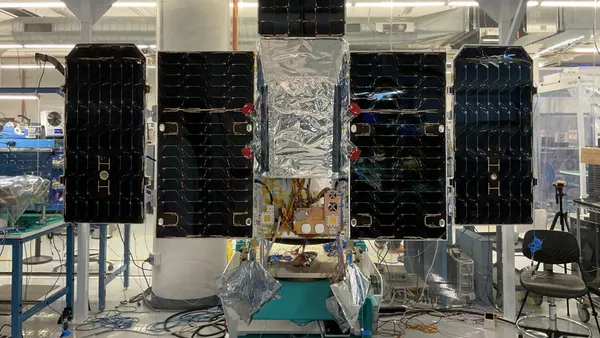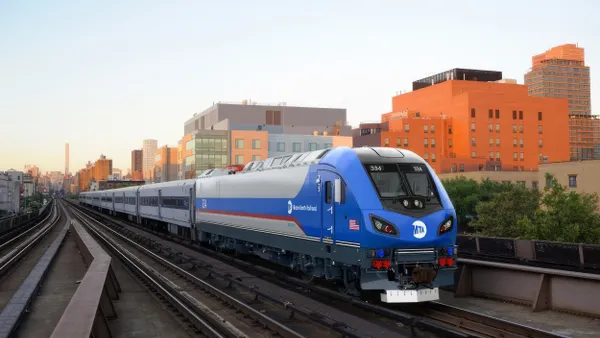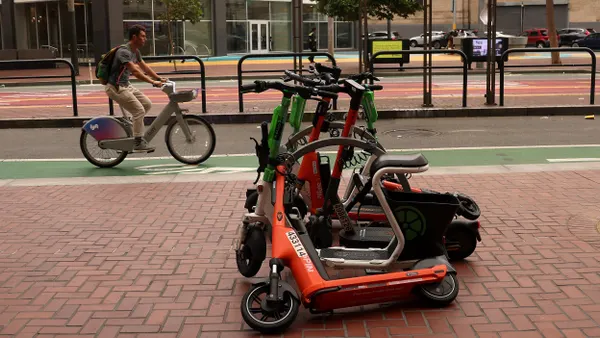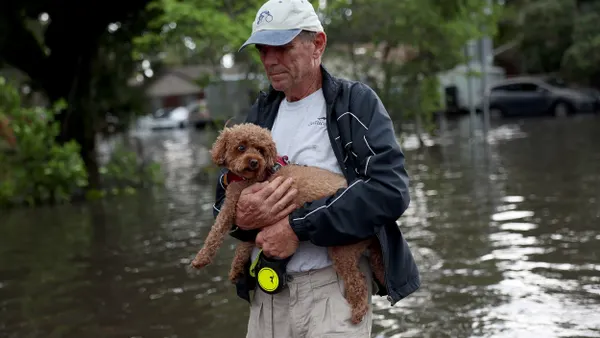Dive Brief:
-
Air quality monitoring app Geme.io recently partnered with four libraries in Helsinki and the University of Helsinki for an air quality tracking initiative that has since come to a halt due to the spread of coronavirus.
-
The initiative allowed libraries to rent out 10 wearable devices to local residents who can track air quality throughout the city. Individuals could upload air quality data from the watch-like devices via Bluetooth onto their smartphones using the Oo app, which is developed by Geme.io. The libraries are able to project the data onto a TV screen to publicly share details about local air quality.
-
Magdalena Pawlowicz, co-founder of Geme.io and Oo, told Smart Cities Dive the pandemic will potentially provide lessons to the city and its residents about air quality, public health and climate change.
Dive Insight:
The devices have already detected a difference in air quality since local residents began self-isolating, according to Pawlowicz. She lives by the sea, an area with fairly good air quality already, but says more polluted areas like main road and streets are seeing improved air quality as well.
Such a collection of air quality data can help to better prepare Helsinki or other cities for future pandemics or emergencies. Information about air quality could potentially be compared with hospital admission rates to find correlations and identify more vulnerable areas within a city, according to Pawlowicz.
The effects of coronavirus on the local environment may also help to make residents more aware of how their actions affect air quality and the climate, she said. Instead of driving to the city alone in the future, for instance, they may choose to bike or share a trip with a neighbor.
Since many U.S. residents have been told to stay home during the COVID-19 pandemic, there have also been significant reductions in traffic and improvements to air quality in U.S. cities. Chicago and Los Angeles have seen some of the biggest drops in traffic, with driver speeds recently increasing over 70% and 53% respectively.
As a result, air pollution from cars has significantly decreased in cities like Los Angeles, Seattle and New York.
"If current trends persist, it is probable major congestion will cease to exist in the country's most congested cities within the week," Trevor Reed, INRIX transportation analyst, said in a emailed statement on March 19.
But some experts warn that the short-term benefits of reduced air pollution won't last beyond current periods of self-isolation, and will largely be outweighed by the effects of the pandemic on the economy and healthcare systems.
To keep up with all of our coverage on how the new coronavirus is impacting U.S. cities, visit our daily tracker.











